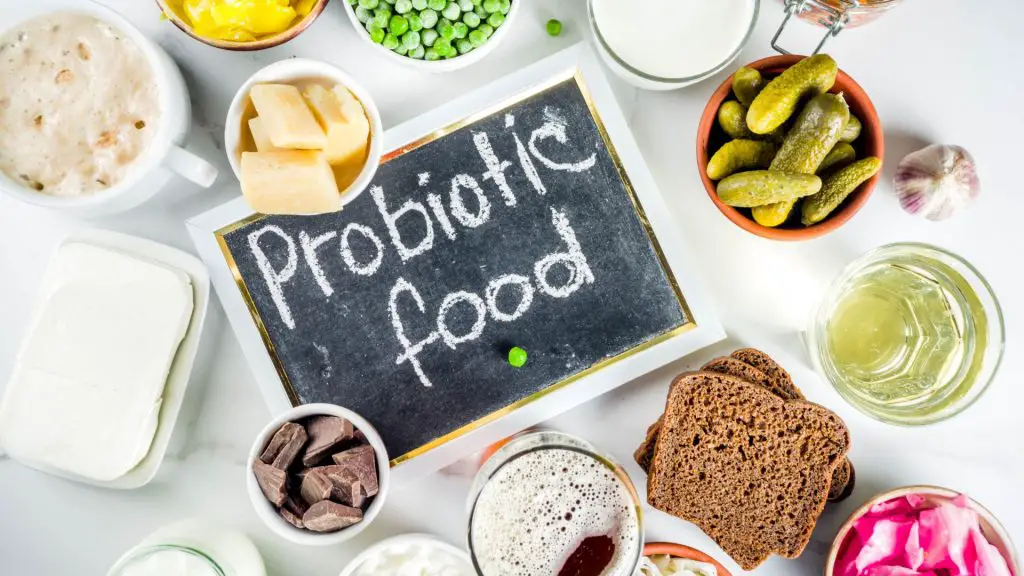Fermented foods have been around for centuries, with records of their consumption going back to 5000 BC. In recent years, fermented foods have seen a resurgence in popularity among health-conscious individuals looking for ways to improve gut health and overall well-being. But are these cultured food products beneficial?

This article will explore the potential benefits and drawbacks of regularly consuming fermented foods so you can decide whether they’re right for you.
What Are Fermented Foods?

Fermented foods are becoming popular within the food, health, and wellness community. But what exactly are fermented foods? And are fermented foods good for you? Fermenting foods came around in ancient times.
They would ferment foods to improve their shelf life. In modern times, fermentation is still widely used in many parts of the world and has become popular in recent years due to its potential health benefits.
Fermentation is when natural bacteria or yeasts convert sugars into organic acids or alcohols. This can help preserve food while altering its flavor and texture, creating unique products such as sauerkraut, yogurt, kimchi, kefir, and beer.
How Do Our Bodies Digest Fermented Foods?

Fermented foods are a unique category of food that has been around for centuries. From yogurt to kimchi, these foods are popular in many cultures and are known for their probiotic benefits. But how do our bodies digest fermented foods?
When we consume fermented foods, the bacteria and enzymes within them begin to break down the food particles into smaller molecules. As this happens, our body absorbs the nutrients and vitamins through digestion, which helps support a healthy immune system.
Additionally, these beneficial bacterias help create an environment in our intestines, helping to better the absorption of key minerals and nutrients from other foods we consume. This helps to provide us with more energy throughout the day and keeps us feeling full longer.
Fermented foods offer a range of positive health benefits by aiding digestion and helping our bodies absorb essential minerals and vitamins.
What Are Some Examples of Fermented Food That Boost The Immune System?

Fermented foods are not only delicious and packed with flavor, but they also contain many health benefits. Fermentation can help to improve nutrient absorption, increase the probiotic content of food, and even boost the immune system. But what are the best-fermented foods? And are fermented foods good for you?
One example is sauerkraut, which is made from fermented cabbage. Sauerkraut contains beneficial bacteria called lactobacillus, which helps to support the gut microbiome and promotes healthy digestion.
Additionally, it’s rich in vitamin C, which helps to keep our immune systems strong and functioning well. Another example is miso paste, a traditional Japanese seasoning made from fermented soybeans.
Kefir is also an interesting choice; it contains millions after millions of probiotics. Kefir has also been proven to support blood sugar control and improve cholesterol and gut health.
Health Benefits of Fermented Foods

The process of fermentation is natural, where bacteria or yeast convert carbohydrates (sugars) found in foods into alcohol or acids. This creates beneficial compounds such as lactic acid, which helps preserve the food and creates beneficial bacteria known as probiotics. These beneficial bacteria have been linked to improved digestive health, better immunity levels, and even improved mental health.
They may also help protect against certain chronic diseases such as cancer and heart disease by reducing inflammation in the body. Fermentation can also help break down proteins in food into simpler forms, making them easier for our bodies to digest and absorb.
Dangers of Fermented Foods?

Fermented foods, such as yogurt and kimchi, have become a popular health trend in recent years. But before you jump on the bandwagon, it’s essential to understand the potential dangers of eating fermented foods.
Certain fermented foods can indeed offer various health benefits due to their high probiotic content.
However, if not prepared or stored correctly, these items can be contaminated with harmful bacteria and lead to foodborne illness. Additionally, some people may experience discomfort from consuming too much lactose or undigested proteins when ingesting fermented dairy products like yogurt or kefir.
When deciding whether to include fermented foods in your diet, you must be mindful of these potential threats.
Can Fermented Foods Boost Mental Health?

Fermented foods have neurotransmitters such as gamma-aminobutyric acid, which are vital for mental wellness.
Conclusion
Fermented foods have been consumed by cultures worldwide for centuries, with some of the earliest records dating back to 7000 BC.
In recent years, there has been a resurgence in interest in fermented foods as people are increasingly turning towards natural sources of probiotics and beneficial bacteria for their health. The research into whether fermented foods are good for you is still ongoing.
Still, the evidence suggests that incorporating these types of food into your diet may benefit your overall health and well-being.
The potential benefits of consuming fermented foods include improved digestion, enhanced immunity, and better nutrient absorption from other foods. However, it is essential to note that not all fermented foods are healthy – they should be consumed in moderation as part of an overall balanced diet.
